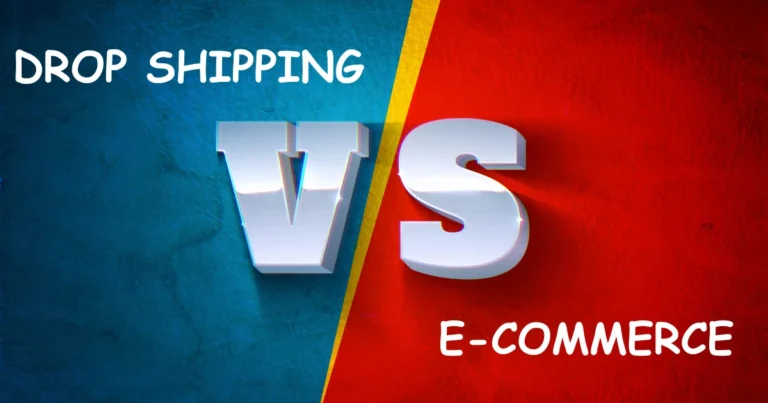What is Dropshipping? How it Works and Give Benefit
Are you looking to start your own business but don’t want the hassle of managing inventory or dealing with shipping logistics? Dropshipping might be the perfect solution for you. This comprehensive guide will walk you through everything you need to know to start a successful dropshipping business from scratch.

What is Dropshipping?
Dropshipping is a retail fulfillment method where a store doesn’t keep the products it sells in stock. Instead, when you sell a product, you purchase it from a third party and have it shipped directly to the customer. This means you never have to handle the product yourself or worry about inventory management. Learn more about how to start dropshipping.
What is a Dropshipper?
A dropshipper is a key player in the dropshipping business model. Essentially, a dropshipper is a retailer who partners with suppliers or wholesalers to sell products to customers without holding any inventory.
Instead of purchasing products in bulk and storing them in a warehouse, a dropshipper lists products for sale on their online store and fulfills orders by purchasing items directly from the supplier or wholesaler, who then ships the products directly to the customer.
how dropshipping works:
Dropshipping operates through a straightforward process that involves key players collaborating seamlessly.
Firstly, the dropshipper selects products and establishes an online store using e-commerce platforms. Know the difference between ecommerce vs dropshipping for your better understanding. Upon receiving an order from a customer, the dropshipper forwards the order details to the supplier, who handles fulfillment directly. This eliminates the need for the dropshipper to hold inventory or manage shipping logistics, streamlining the business process.

The supplier picks, packs, and ships the product directly to the customer, using their packaging and shipping methods. Simultaneously, the dropshipper communicates with customers, providing order updates and addressing any inquiries or concerns.
This customer-centric approach is crucial for maintaining satisfaction and loyalty, enhancing the drop shipper’s reputation.
Why Start a Dropshipping Business?
There are several reasons to start a dropshipping business. some of which are discussed below;
Low Startup Costs:
With no need to purchase inventory upfront, the initial investment required for a dropshipping business is significantly lower compared to traditional retail models.
Flexibility:
You can run your dropshipping business from anywhere with an internet connection, giving you the freedom to work remotely.
Scalability:
Since you don’t have to deal with inventory, you can easily scale your business without the constraints of warehousing and fulfillment logistics.
Wide Product Selection:
With dropshipping, you have access to a vast range of products without having to stock them yourself, allowing you to quickly adapt to market trends and customer demands. Want dropshipping niches idea, read our blog on “profitable dropshipping ideas”
Challenges in Dropshipping:
Every business faces some challenges in doing its best and standing out from its competitors. dropshipping business also faced some challenges including;
Supplier Reliability:
One of the most significant challenges in dropshipping is finding reliable suppliers or wholesalers. Dropshippers depend on their suppliers to fulfill orders promptly and maintain product quality. Issues such as stock shortages, shipping delays, and communication problems can negatively impact the drop shipper’s reputation and customer satisfaction.
Thin Profit Margins:
Dropshipping often comes with lower profit margins compared to traditional retail models. Since dropshippers purchase products at wholesale prices and sell them at retail prices, the margins can be slim, especially in highly competitive markets. It can be challenging to find a balance between pricing products competitively and maintaining profitability.
Intense Competition:
The barrier to entry in dropshipping is relatively low, leading to increased competition in many niches. With numerous dropshipping businesses offering similar products, standing out from the crowd and attracting customers can be challenging. Dropshippers must find unique selling points and differentiate their brand to remain competitive in the market.
Shipping Costs and Times:
Shipping costs and delivery times can pose significant challenges for dropshippers. Customers expect fast and affordable shipping, but this can be difficult to achieve, especially when dealing with suppliers located overseas. High shipping costs and long delivery times can lead to cart abandonment and negative reviews, impacting the dropshipper’s bottom line and reputation.
Brand Reputation:
Since dropshippers often rely on third-party suppliers to fulfill orders, they have limited control over the product quality, packaging, and shipping process. Negative experiences with suppliers can reflect poorly on the dropshipper’s brand, leading to a loss of trust and credibility among customers.
Legal and Regulatory Compliance:
Dropshippers must navigate various legal and regulatory requirements, including consumer protection laws, import/export regulations, and tax obligations. Failure to comply with these regulations can result in fines, penalties, or even legal action, posing significant risks to the dropshipper’s business.
Pros and Cons:
1. Low Initial Investment:
Unlike traditional retail businesses that require significant upfront investment in inventory, dropshipping allows entrepreneurs to start with minimal capital.
2. Flexibility and Mobility:
With a dropshipping business, you can work from anywhere with an internet connection. This flexibility enables entrepreneurs to manage their businesses remotely, providing freedom and autonomy in terms of location and work schedule.
3. Reduced Risk:
Since you only purchase products from suppliers after you’ve made a sale, dropshipping significantly reduces the risk associated with holding inventory. You’re not tied to unsold stock, minimizing the risk of obsolete or outdated inventory.
4. Scalability:
Dropshipping offers scalability without the constraints of inventory management and fulfillment logistics. As your business grows, you can easily expand your product offerings and reach a broader audience without worrying about warehousing or shipping logistics.
1. Dependence on Suppliers:
The success of your dropshipping business relies heavily on your suppliers’ reliability and efficiency. Issues such as stock shortages, shipping delays, or product quality issues can directly impact your customer satisfaction and reputation.
2. Competition:
The barrier to entry for dropshipping is relatively low, leading to increased competition in many niches. With numerous dropshipping businesses offering similar products, standing out from the crowd and attracting customers can be challenging.
3. Customer Service Challenges:
As the face of your business, you’re responsible for providing excellent customer service, even when issues arise with products or shipments. Handling customer inquiries, returns, and complaints can be time-consuming and require effective communication skills.
4. Lower Profit Margins:
While dropshipping offers low startup costs, it often comes with lower profit margins compared to traditional retail models. Since you’re purchasing products at wholesale prices and selling them at retail prices, the margins can be slim, especially in highly competitive markets.
5. Limited Control:
Since you’re relying on third-party suppliers to fulfill orders and ship products, you have limited control over the fulfillment process. This can result in inconsistencies in packaging, shipping times, and customer service, which may affect the overall customer experience.






